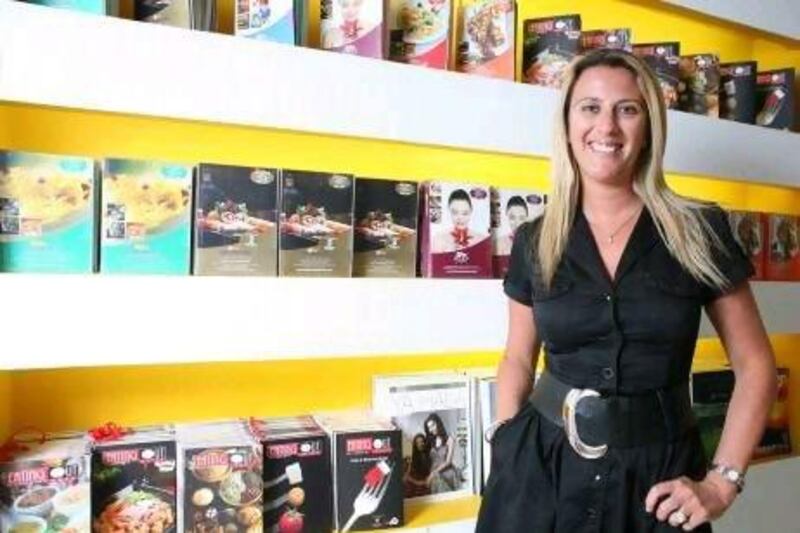In the end, it was a two-for-one deal that the publisher of The Entertainer could not refuse.
But when Riyada Enterprise Development came knocking on Donna Benton's door with a proposal that they share ownership of her voucher-book company in exchange for a multimillion-dollar injection, she went through several months of corporate soul-searching.
Two owners for one company is a set-up that can make or break a young business.
Ms Benton's company had been growing at a 30 per cent annual clip since she founded it in 2001, and its books offering hundreds of deal in dining, hospitality and even health care have become a staple of the region's retail scene.
But Riyada, an investment platform of Abraaj Capital, was offering the sort of funds that many people running small and medium-sized enterprises (SMEs) often struggle to attract.
It took a year of talks for the deal to be finalised this March.
"You have to be happy with the partner coming in," says Ms Benton. "We had a 50-50 split as we did not want to get into a bidding war, and we were transparent."
For entrepreneurs such as Ms Benton, private equity companies are a way to expand the business.
Those who have taken the plunge have some advice for their peers at SMEs: sort out the legalities thoroughly, beware of equity companies that seek more than 51 per cent ownership, and continue working at the company as if it were all your own even after the deal.
Besides bringing much-needed capital to SMEs, private equity professionals help to implement proper corporate governance and financial reporting procedures and find ways of driving the bottom line, says Richard Clarke, the Dubai-based managing director for transaction and reorganisation services for the Middle East at Deloitte Corporate Finance.
"In exchange, private equity investors will clearly be looking for sufficient economic returns to make their investment worthwhile," says Mr Clarke.
"Fund managers adopt a hands-on approach, working alongside management to make operational improvements and will demand certain control rights to add real value and take the business to the next level."
Since the 2008 recession, the regional private equity landscape has shrunk and is now dominated by the likes of Riyada's fund, HSBC's International Trade SME fund and Arabian Gulf Fund.
Exciting as it is for an SME owner to attract funds, a business owner needs to assess the value of their company objectively.
For The Entertainer deal, Ms Benton said her medium-sized company looked at the growth potential of the company two years previously and two years after the investment.
The investment is helping The Entertainer grow at a pace that would not have been possible otherwise, she says. It is to launch in South Africa and Singapore next month and Egypt and Lebanon early next year. The precise amount of the deal has not been disclosed.
Having private equity investors on board can also be risky, especially when things go wrong.
That can be an absolute nightmare, says Peter Cooper, who was a partner in AME Info when it went through a private equity buy-in and sale in 2006. The company employed 20 people at that time.
"They would be all over the business and try to take control, and often you would find that buried in the tonnes of legal documents that they get you to sign that you do lose control," says Mr Cooper.
The deal his former company went through was negotiated over 15 months, at the end of which AME Info was sold for US$27 million (Dh99.1m) to Emap with HSBC Middle East as the private equity partner.
Ms Benton recommends ensuring that legal documents are in place and the owner knows the terms and conditions thoroughly.
Along with Mr Cooper, she also suggests SME owners do their due diligence in researching a private equity partner, such as finding out which other companies they own and how much they have in funds.
"Be extremely wary of firms that want more than 50 per cent of your equity because that is really a takeover, not an investment," says Mr Cooper.
Ask questions, says Ms Benton.
"I still do," she says. "These might seem silly, but do not be scared."
Even after the deal, Ms Benton endorses the idea of running the business as one's own.
"As an SME owner you know your own business inside out," she says. "I still hold that passion … because we want to prove that it has the potential; I am actually working harder."





